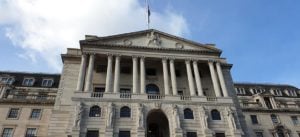Bank of England Raises Interest Rate to 1.75% – How will it affect your mortgage?

On 4th August 2022, another increase to the Bank of England’s (BoE) base rate has seen it rise to 1.75%, the highest rate in 14 years. Many economists fear a recession is on the cards, with inflation expected to hit as high as 15% in 2023. Further BoE rate increases are also expected soon, with the next decision on this due on Thursday 15th September.
Aside from contributing to a significant drop in consumer spending, labour shortages and continued energy cost rises in the coming year, this escalation will have a prominent knock-on effect in the mortgage industry.
What does this mean for mortgage rates?
Although we’ve seen a series of more gradual hikes to the BoE base rate since early 2022, today’s rise of an additional 0.5%, the most significant individual incremental jump in 27 years, underscores the severity of inflation and the cost of living crisis in the UK. To date, the effect on mortgage rates has resulted in an effective rate of 2.15%, but this will almost certainly increase again over the coming days.
As tracker rate mortgages follow the base rate directly, a current tracker rate of 2.5% will immediately rise to 3%, which is equivalent to a monthly increase of around £38 on the average monthly mortgage repayment on a £150,000 loan. For standard variable rate mortgages, it’s not possible to calculate the effects, as lenders will need time to reflect and adjust their rates accordingly, however, it’s unlikely that many will be able to absorb such a significant increase. If you’re currently on an SVR, you should, therefore, expect to see a rise in your rates in the coming days or weeks.
If you’re a homeowner in either of the above scenarios, now is the time to book a call with a mortgage broker to discuss the potential fixed-rate options available to you through a remortgage. Although rates won’t be as competitive as when you locked in your last deal, it may well be worth getting ahead of the curve and locking in the rates available now, before they almost certainly rise substantially higher.
What does the future hold for homeowners and prospective buyers?
Despite this potential hope for an eventual halt to extreme property prices, the impact of the current economic climate on first-time buyers cannot be overstated. Property specialists Rightmove report that higher mortgage rates combined with the rising house prices have put the average monthly mortgage payment for a new first-time buyer at £976 a month, 20% higher than it was just 7 months ago, in January 2022. If this 0.5% interest rate rise directly impacts new fixed-rate deals, they expect average monthly payments to exceed £1,030 imminently.
Amid predictions of further rises to inflation, future base rate increases cannot be ruled out, but help is available for customers who are looking to safeguard themselves.
Pete Mugleston, Online Mortgage Advisor’s managing director, said: “Right now, the value of finding the right mortgage broker is more important than ever. If you’re on a tracker or standard variable rate mortgage, speaking to an advisor is recommended so they can look into how much you could save by locking yourself into a fixed-rate agreement.
“The same goes for new mortgage customers and anyone approaching the end of a fixed-rate deal. Talking to a mortgage broker before you apply can save you time and money in the long run, which is absolutely vital in the current financial climate.”
You can read more about how the Bank of England’s base rate affects mortgages in our standalone guide to this topic.
